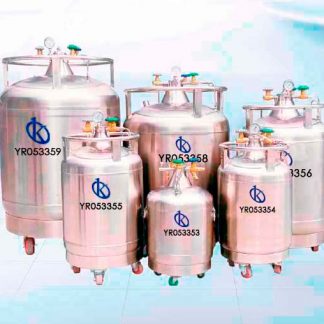Medical practice and research require in some cases, the transport of biological samples, because the samples are not obtained at the place where they are processed, or in other cases, they must be moved from one laboratory to another.
This transport process is subject to protocols and regulations at international level, which guarantee the maintenance of the original characteristics of the sample, or of the pathogens to be analyzed.
The most important rule, from which the rest of the laws related to the transport of biological samples arise, was promulgated by the World Health Organization and has been applied since 2009. It was prepared by the United Nations Committee of Experts on the Transport of Dangerous Goods (UNCETDG).
The regulations establish three types of materials, among the biological samples:
- Infectious substances.
- Samples for diagnosis.
- Biological products.
Each type of material has requirements linked to packaging, which aim to ensure the safety of both the sample and the personnel carrying out the transport. In some cases, due to the characteristics of the material to be transported, the use of cryogenic substances such as liquid nitrogen is required. When this situation arises, tanks of liquid nitrogen are needed, as containers for the samples to be transported.
Types of biological samples and cold chain assurance
It is important to know the type of tissue that will be transported, the purpose of the analysis and the conditions needed for its preservation. As organic material, biological samples are prone to a natural process of deterioration and decomposition, which can interfere with their analysis, if they are not kept at the appropriate temperature.
In general, sterile and non-sterile biological samples can be transported at temperatures of 4°C. However, exudates and samples of secretions intended for analysis may be transported at room temperature within the first 24 hours, after which time they should be transported between 2°C and 8°C. In the case of tissues for biopsies or virus cultures they should be transported frozen, between -20°C and -80°C.
It is necessary to identify the peculiarities of each type of sample, to choose a safe transport temperature, since some environmental conditions can promote the proliferation of bacteria and organisms that would contaminate the material and compromise the study.
Cases where the use of liquid nitrogen tanks for transport is required
The quality and reliability of a laboratory result is not based solely on the analytical process. It begins with the collection of the sample, then its preservation and transport. If the sample is transported at an inadequate temperature, the quality control used in the laboratory will not be useful.
For this reason, it highlights the need for an efficient container that allows the integral maintenance of temperature, throughout the transport chain. Particularly in situations where the transport of ultra-frozen or cryogenized samples is required. In these cases, the use of liquid nitrogen tanks is essential.
This section includes those samples that require ultra-freezing (-80ºC), to avoid degradation, such as tissues and organs, cells, nucleic acids (DNA/RNA) and plasma samples. Samples in which complete suspension of biological activity and degradation processes is required are also included. In these cases, transport under cryogenization conditions (-150ºC to -190ºC) is required. In general, the lower the temperature, the greater the stability, i.e. the enzymatic processes that alter the sample, are stopped, as well as the microbial development.
Kalstein Nitrogen Tanks
A wide range of Nitrogen tanks of the YR series is offered, in which the most appropriate for the transport of biological samples can be chosen. These products offer high thermal efficiency, extremely low LN2 evaporation loss storage and advanced vacuum and super insulation technologies. For more information on Kalstein nitrogen tanks, visit HERE

